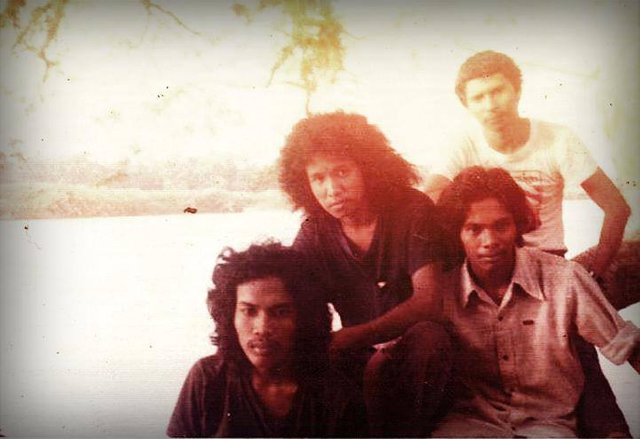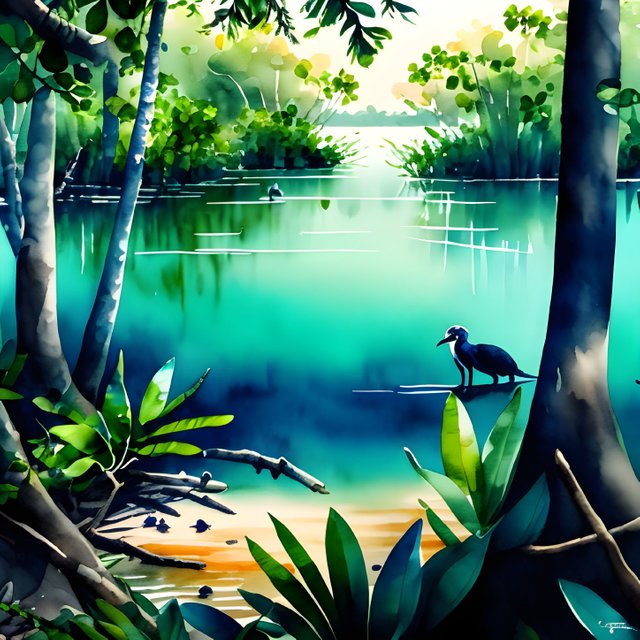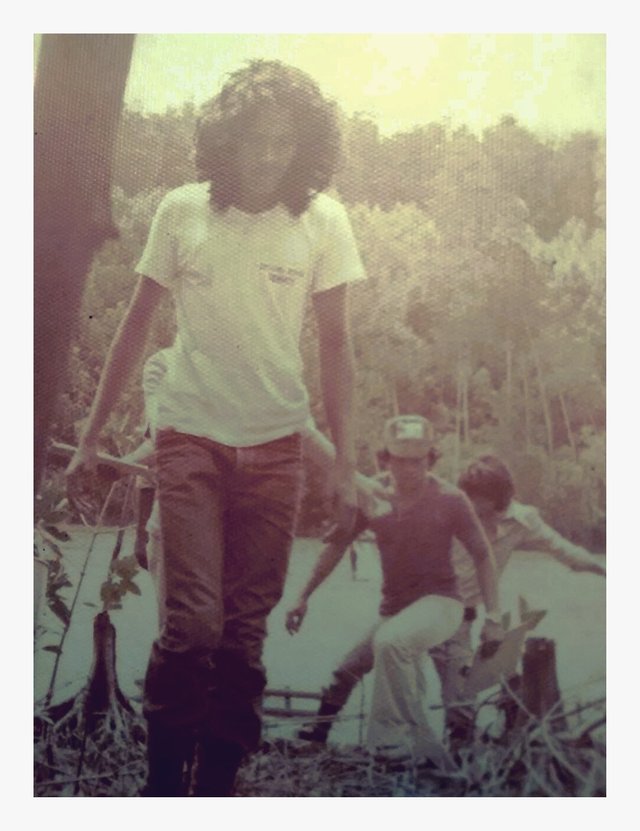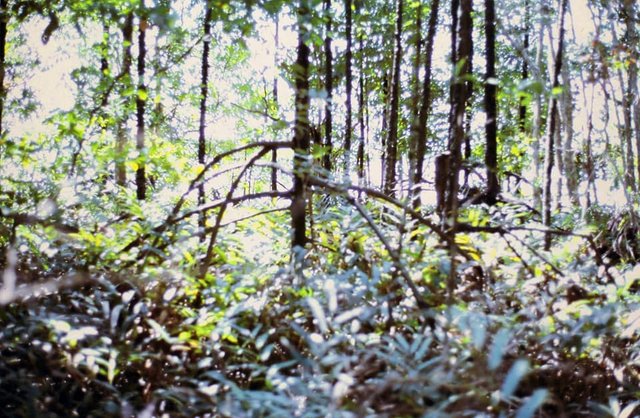First trip to the Mangrove Forest - Reminiscence of an Oldie of 66
I recently posted this on Facebook but since I had found Steemix I am reposting it again.
As students of Forestry at the School of Applied Science, ITM intake 1973, we were fortunate to have the opportunity to learn about and experience the Malaysian forest first-hand. During our studies, we had the chance to explore some of the most beautiful and diverse forests in Malaysia. We were able to observe a wide variety of flora and fauna, as well as gain an understanding of how these ecosystems function and interact with each other. We also learned about conservation efforts that are being taken to protect these forests for future generations. Our time spent in the Malaysian forest was an invaluable experience that has stayed with us throughout our lives.

Tropical Rain Forest of Malaysia Deep Dream Generate https://deepdreamgenerator.com/ddream/njyegfjhu0r
Our first trip to the Mangrove forest near Port Klang, in Selangor, was an unforgettable experience. The air was filled with the scent of the mangroves and the sound of birds chirping in the trees. The sun shone brightly through the canopy of trees, creating a peaceful atmosphere. We were amazed at the sheer beauty of this unique environment and its diversity of flora and fauna. We spent hours exploring the area, taking in all its natural wonders. It was truly a magical experience that I will never forget.

Batchmates, Zaaba, Jubri, Awal and Ridho during the trip to the mangroves
Disembarking the forestry Department boat, we threaded the muddy saline soft earth and experienced the mangrove forest ecosystem. It was a sight to behold; a vast expanse of lush green trees and winding pathways, with the salty air of the sea wafting through. The trees were tall and majestic, their roots reaching deep into the mud, providing an intricate network of pathways for us to explore. As we ventured further into the forest, we could hear the sound of birds chirping in the distance and feel the warmth of the sun on our skin. The mangrove forest was teeming with life; from crabs scuttling along the shoreline to monkeys swinging from tree to tree. It was truly a magical experience, one that will stay with me forever.

The mangrove forest was teeming with life Deep dream generate https://deepdreamgenerator.com/ddream/1i1exel8zf9
Albert Abee, a Peace Corps volunteer and recent graduate in forestry, taught our Basic Forestry course in the first year. Albert Abee was a great asset to our Basic Forestry class. He was passionate about sharing his knowledge that he learned on college. He was an enthusiastic lecturer and had a deep understanding of the subject matter. He was also able to provide us with real-life examples from his learning about Malaysian forests, which helped us to understand the concepts better. His enthusiasm for the subject was infectious and it made learning enjoyable and interesting.
I still distinctly recall the forester's advice to always be on the lookout for pit vipers, which are a part of the mangrove ecosystem and could be hiding behind the leaves.

Abee and Sheila on their 55th Aniversary on the 10th June 2021
The mangrove pit viper has scales that are highly keeled, a rather thick body, and an average length of 68 to 107 cm. The trapezoidal, blackish-brown head is separate from the animal's neck. The crown is blackish-brown, and the scales on the skull are tuberculated or keeled. This nocturnal snake can frequently be seen perched on low plants in the mangrove areas where it lives. It consumes frogs, lizards, and other small animals for food.

Walking in the muddy saline mangrove forest 50 years ago
Mangroves are a type of ecosystem found in tropical and subtropical coastal areas. They are characterized by their dense stands of evergreen trees and shrubs that grow in the intertidal zone between land and sea. Mangroves provide a unique habitat for a variety of species, including fish, crustaceans, mollusks, birds, and mammals. In Malaysia, mangrove forests can be found along the coasts of Peninsular Malaysia, Sabah and Sarawak. These forests are important for protecting coastal areas from storms and erosion, providing habitat for wildlife, and supporting local fisheries. Mangroves also play an important role in sequestering carbon from the atmosphere. In addition to their ecological importance, mangrove forests are also an important source of livelihoods for local communities who depend on them for fishing and other activities such as aquaculture.

Interzodal zone and stilt roots of Mangroves
We had a great time on the day trip, and by four o'clock we had departed the mangrove forest in the boat we had come in. We watched as fishing boats passed us on the way to the spot where our college bus was waiting.
I just realised that the trip took place in 1973, which means that I wrote this almost 50 years after. Fifty years from now would be 2073.
abr
hi there